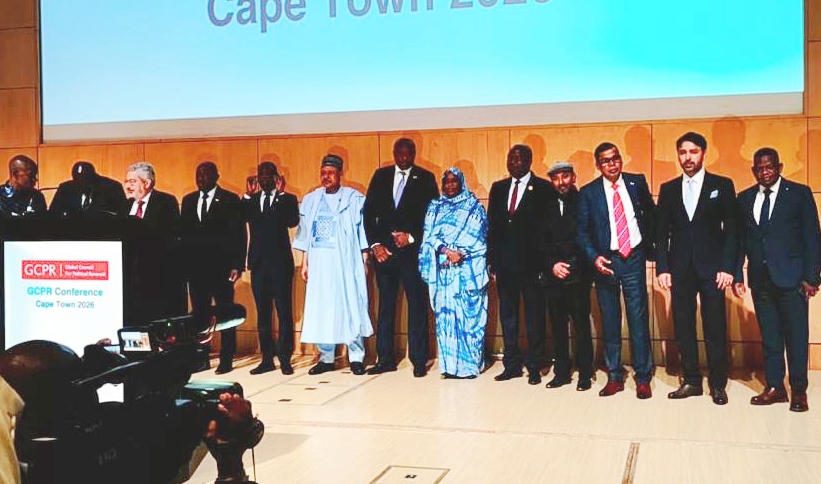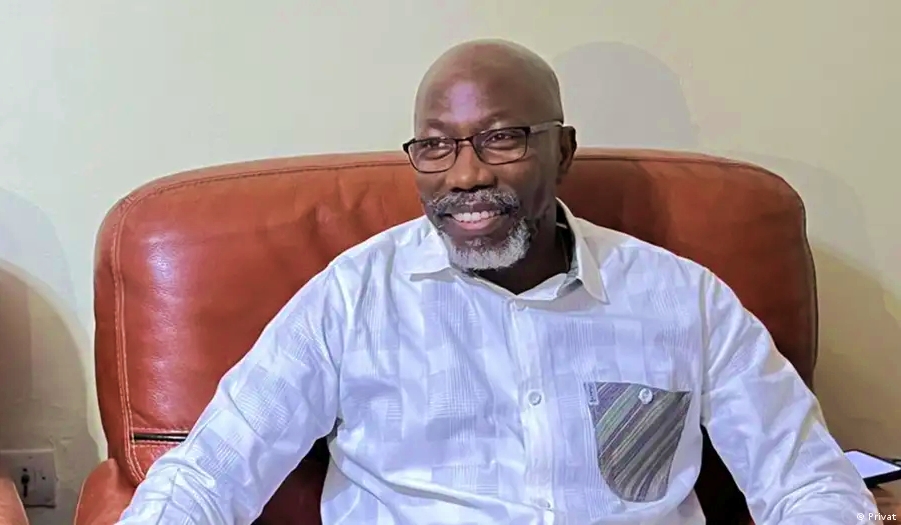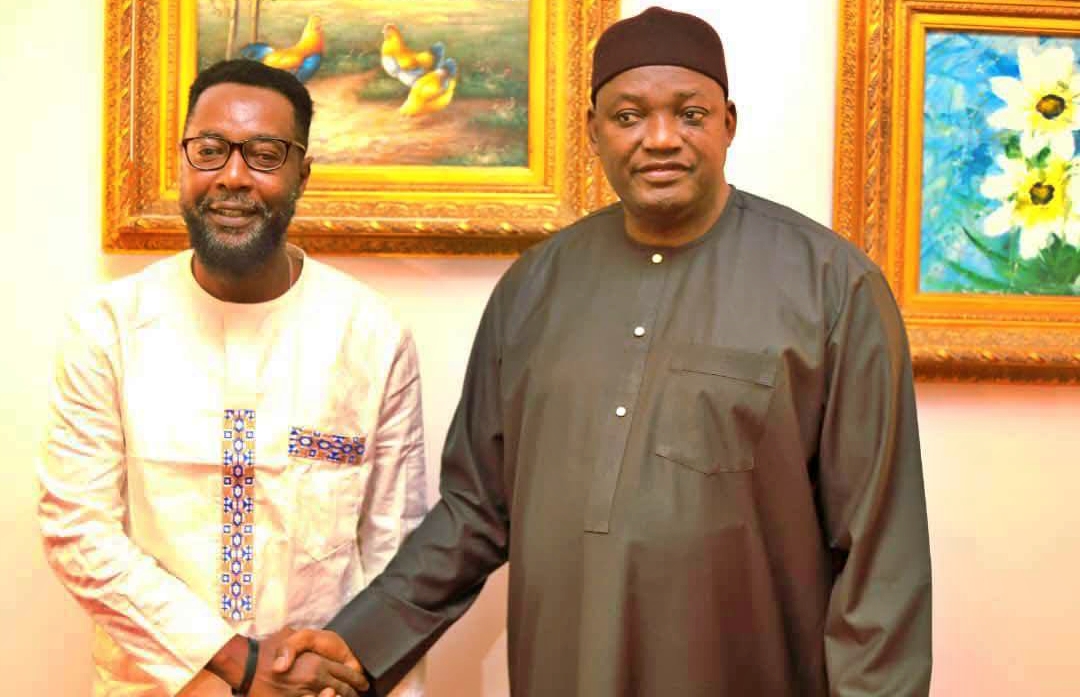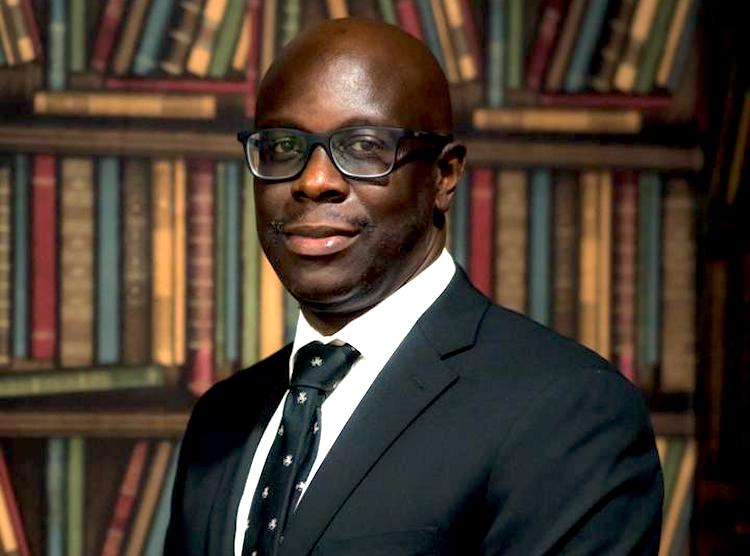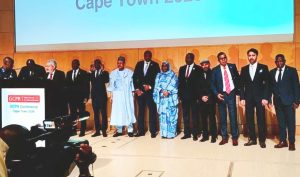Gambiaj.com – (BANJUL, The Gambia) – A heated debate has erupted following the Gambian government’s decision to feature former President Yahya Jammeh’s image on billboards commemorating the country’s Diamond Jubilee. The move has drawn sharp criticism, particularly from human rights activists and legal professionals, who view it as an affront to the country’s transitional justice efforts.
Lawyer Salieu Taal, the former president of the Gambia Bar Association and former chairman of the civil society organization “Gambia has Decided,” has condemned the decision, describing it as “immoral“and “deeply insensitive.” In his statement, Taal argued that the government was celebrating a man who had inflicted years of brutality on the Gambian people and disregarded the nation’s quest for justice.
“Our country desperately needs prayers,” Taal stated. “Why would the state, after the recent threats issued by Jammeh against President Barrow and the blatant disregard for our transitional justice process, erect billboards featuring Jammeh’s image to commemorate our Diamond Jubilee? A man who shattered our social fabric and instilled a culture of brutality on our once-peaceful coast is being celebrated and revered by the very entity he is undermining.”
Comparing the move to Germany honoring Adolf Hitler during an independence celebration, Taal’s remarks have sparked a divisive conversation among Gambians, with many taking to social media to voice their opinions.
Divided Reactions
While some Gambians echoed Taal’s outrage, others defended the decision, arguing that Jammeh remains an integral part of the country’s history, regardless of his human rights record.
“Well, you can’t deny the fact that he was a former president, can you? Calm down,” one commenter wrote, reflecting a sentiment shared by many who believe Jammeh’s legacy cannot simply be erased.
Another added, “We like it or not, he is part of our history. And regarding his human rights records, that’s between him and God. This government will never bring him to justice, especially with elections coming up.”
Several commenters pointed to what they saw as Jammeh’s contributions to the country, highlighting developments in agriculture, education, and healthcare.
“We owe a great debt of gratitude to Jammeh for the lifesaving initiatives he brought us. Courtesy of his visionary leadership, sectors such as internal security, agriculture, education, and health—once coveted across our continent—became profoundly envied,” one supporter wrote.
Others, however, took a more neutral stance, arguing that history should be acknowledged in its entirety, without erasing either the good or the bad.
“Whatever wrongs Jammeh had done, he can never be erased from the history of The Gambia,” one user commented.
Call for an Alternative Approach
Amid the controversy, some Gambians proposed an alternative way to commemorate the country’s independence—one that focuses on democratic values rather than individual leaders.
“It’s better to put the citizens on the billboard and write #NoToDictatorship #NoToSelfPerpetuatingRule and #NoToThirdTerm,” one commentator suggested. “That is the only way to celebrate our independence while honoring the needs and aspirations for a better Gambia.”
As the debate continues, the controversy highlights a broader issue in The Gambia’s post-Jammeh era—how to reconcile a painful past while moving toward national unity and democratic governance.
For now, the billboards remain, serving as a stark reminder of the nation’s divided opinions on its former leader. Whether this decision will impact the government’s public perception, especially in the lead-up to future elections, remains to be seen.




